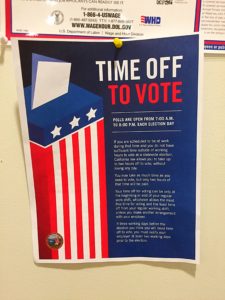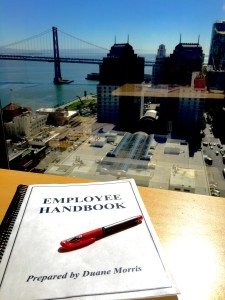By Allegra A. Jones
Just like checking your smoke detector or the air in your car tires, checking in about employment law updates midyear is a great idea. Here’s a quick primer on some of the most significant, recent developments affecting restaurants and bars:
1. California’s Version of the Equal Pay Act. It’s a good time for all employers to conduct an audit to make sure they are not paying workers of one sex more than workers of the opposite sex who are performing substantially similar work, in violation of the California Fair Pay Act. As of January 1, 2017, California employers must also be able to show that any difference in pay between employees performing substantially similar work is not based on race or ethnicity. For example, if your pay scale is based on merit, seniority, a piecemeal rate, or another valid factor such as education or training, pay disparity may be justifiable. But, the best practice is to conduct a full analysis of the reasons for any pay disparity among your employees, and to make sure that prior wage salary history is not the sole reason for any pay disparity.
2. Marijuana. Even though California “legalized” marijuana in the last election, employers need not permit marijuana use or distribution in the workplace. Under current California law, recreational and medicinal marijuana use does not need to be accommodated. (See Ross v. RagingWire Telecommunications, Inc.) When updating your employee handbook, make sure your drug-free workplace policy explicitly lists marijuana as a prohibited substance, particularly as cannabis is still listed as a Schedule I drug under the federal Controlled Substances Act (“CSA”) (21 U.S.C. § 812(c)). Continue reading “Midyear Compliance Check-In for Restaurants and Bars in California”




